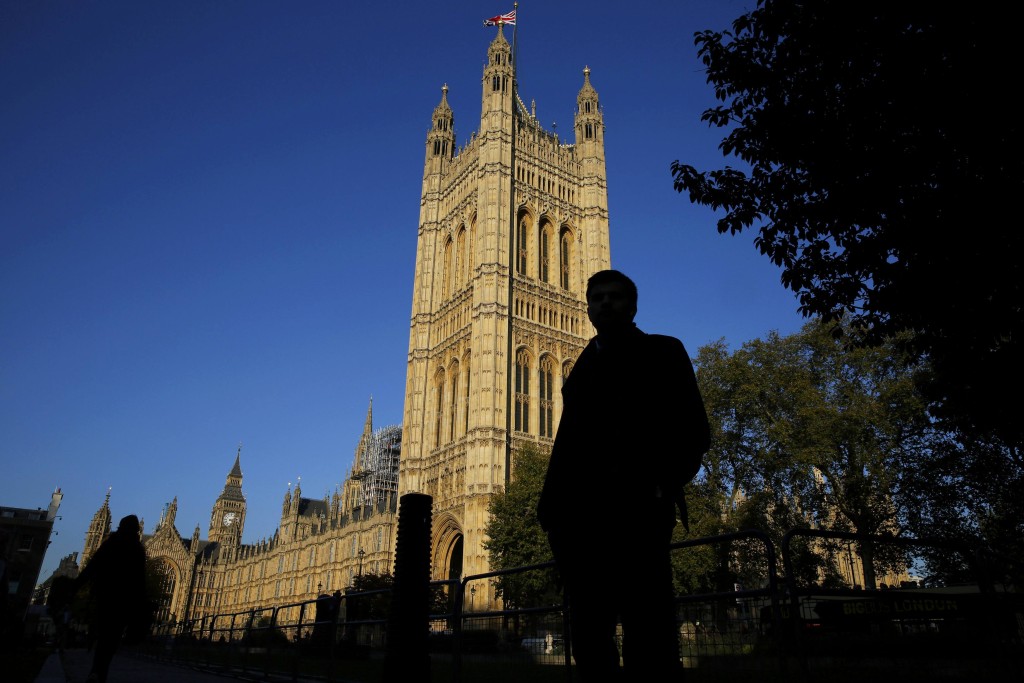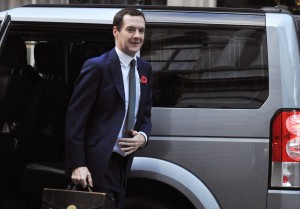House of Lords breaks longstanding convention to challenge gov’t over contentious welfare reform plan
British politics was thrown into constitutional disarray yesterday after Chancellor of the Exchequer George Osborne’s flagship, controversial welfare reforms were delayed by Parliament’s unelected House of Lords last night, dealing a blow to the Conservative government and setting the stage for a bitter conflict which could alter the upper chamber forever.
Peers in the House of Lords overturned a long-standing political convention by voting to reject a financial matter, opposing planned changes to tax credits which supplement the income of those on low pay. Such an event has only happened five times since World War II, experts believe.
The issue has taken on extra weight as British Prime Minister David Cameron vowed prior to the last election, on two separate occasions including the day before the election took place, that his party would not cut tax credits.
The reforms are a key component of Osborne’s plan to wipe out Britain’s budget deficit by 2020, and the defeat could force an embarrassing re-think — the government yesterday said it was in “listening mode” — and potentially damage the chancellor’s credentials as a successor to the prime minister.
Designed to reduce the annual welfare bill by around £4.4 billion (US$6.76 billion), the changes have been widely criticized by those who say they will penalize working families — including by some Conservative lawmakers.
Last week, newly elected MP Heidi Allen made waves after she used her maiden speech in the House of Commons to attack her own party.
“It is right that people are encouraged to strive for self reliance and to find work that pays for their independence from the state. But I worry that our single-minded determination to run a budget surplus is betraying who we are. I know true Conservatives have compassion running through their veins,” she said.
Independent report
Experts and independent analysts have warned the cuts will hit the poorest the hardest and yesterday, new research from welfare reform group Policy in Practice revealed that some two-thirds of those who receive working tax credits would be worse off by 2020, despite the government’s claims to the contrary. The Institute for Fiscal Studies has also warned that three million families would lose £1,000, if the cuts are brought in.
Peers backed two motions to delay the governments plans, voting 307 to 277 in favour of one which required the government to conduct an independent report on the impact of the cuts before the issue is brought back to the Lords.
They also voted 289 to 272 in favour of requiring the government to put in place a scheme of transitional protection for at least three years for those affected by the cuts.
“The government insists there is no alternative to these cuts… but actually, my Lords, there is,” said Patricia Hollis, one of the peers who proposed the delay. “We can and should offer transitional protection to existing families who count on tax credits, single parent, the self-employed… families with disabled children and carers.”
Lawmakers in the chamber voted against a so-called “fatal motion” — which would’ve killed the bill — tabled by Lady Manzoor, a Liberal Democrat peer, by 310 votes to 99.
Downing Street said it will outline plans tomorrow for a “rapid review” of the proposed cuts.
“Tonight unelected Labour and Liberal lords have defeated a financial matter passed by the elected House of Commons and David Cameron and I are clear that this raises constitutional issues that need to be dealt with,” Osborne said.
Constitutional questions
The Conservatives have a majority in the elected 650-seat House of Commons, but not in the Lords. The government has criticized the house for acting, as they say, outside its remit as a “revising chamber” by proposing the votes. The government is reportedly considering flooding the chamber with sympathetic members, as the PM has the right to appoint new peers.
Speaking ahead of the vote, House of Lords leader Tina Stowell said blocking the reforms would challenge “a clear and unequivocal decision” made by the Commons.
Downing Street quickly issued a statement after the developments.
“The prime minister is determined we will address this constitutional issue. A convention exists and it has been broken,” it read.
A statement from the chancellor meanwhile hinted the Lords would face retailiation over the rebellion.
“Tonight unelected Labour and Liberal lords have defeated a financial matter passed by the elected House of Commons and David Cameron and I are clear that this raises constitutional issues that need to be dealt with,” Osborne said.
The government says the effects of the reforms would be mitigated by other policies, such as a planned increase in the minimum wage for many workers. But most independent studies have shown many of the poorest will still face a loss of income.
Osborne announced the changes to the tax credit system in a July budget two months after the Conservatives won a surprise election victory having campaigned on a promise to shrink state spending and run a fiscal surplus. But public opinion has turned against Osborne’s tax credit reforms. An opinion poll on Sunday showed 46 percent thought the cuts were unfair, while 28 percent said they were fair.
The defeat on such a flagship policy is a blow to Osborne. Having refused to bow to pressure to water down or stagger the reforms, he is now expected to look at ways to mitigate the impact of the cuts before a planned budget update on November 25.
The vote tees up a power struggle between the Lords and the Commons, that could reignite calls for a radical overhaul of the lawmaking process — something the Tories could have done under the previous government, when their coalition partners, the Liberal Democrats, pushed hard for reform of the House.
One unnamed Tory aide said that by defying warnings not to break convention, the Lords had given the government cause to “do something quite substantial” in return.
The Lords is largely made up political appointees recruited by successive governments, many of whom are entitled to serve life terms. Critics decry the fact that the lawmakers are unelected and unaccountable.
— James Grainger with agencies.
Originally published in the Buenos Aires Herald, on Tuesday, October 27, 2015.
Link: http://www.buenosairesherald.com/article/201814/british-peers-rebel-over-tory-tax-credit-cuts.


